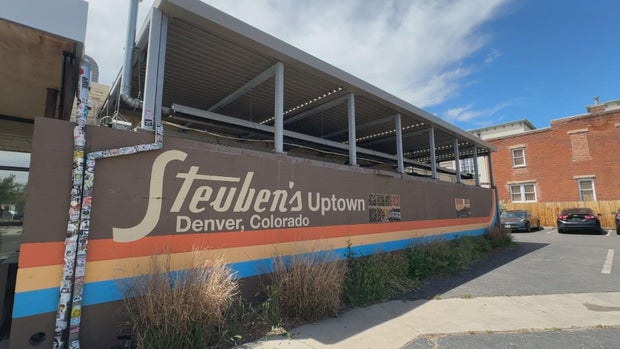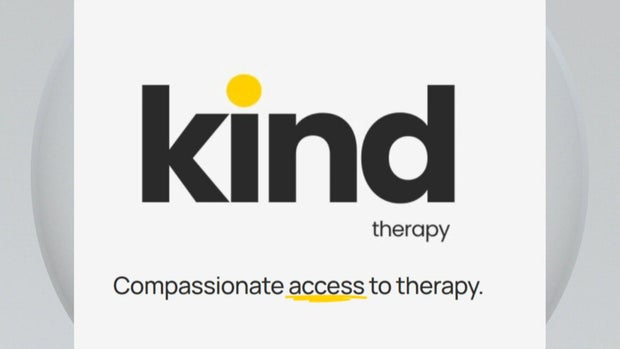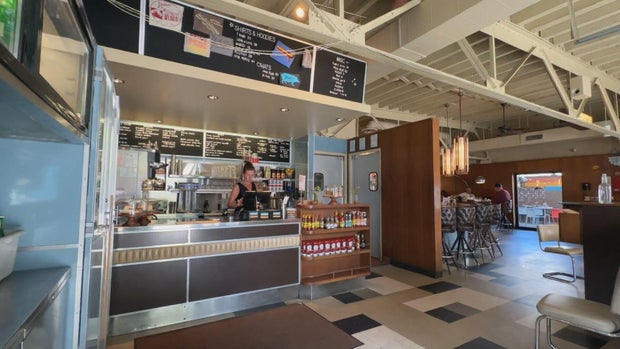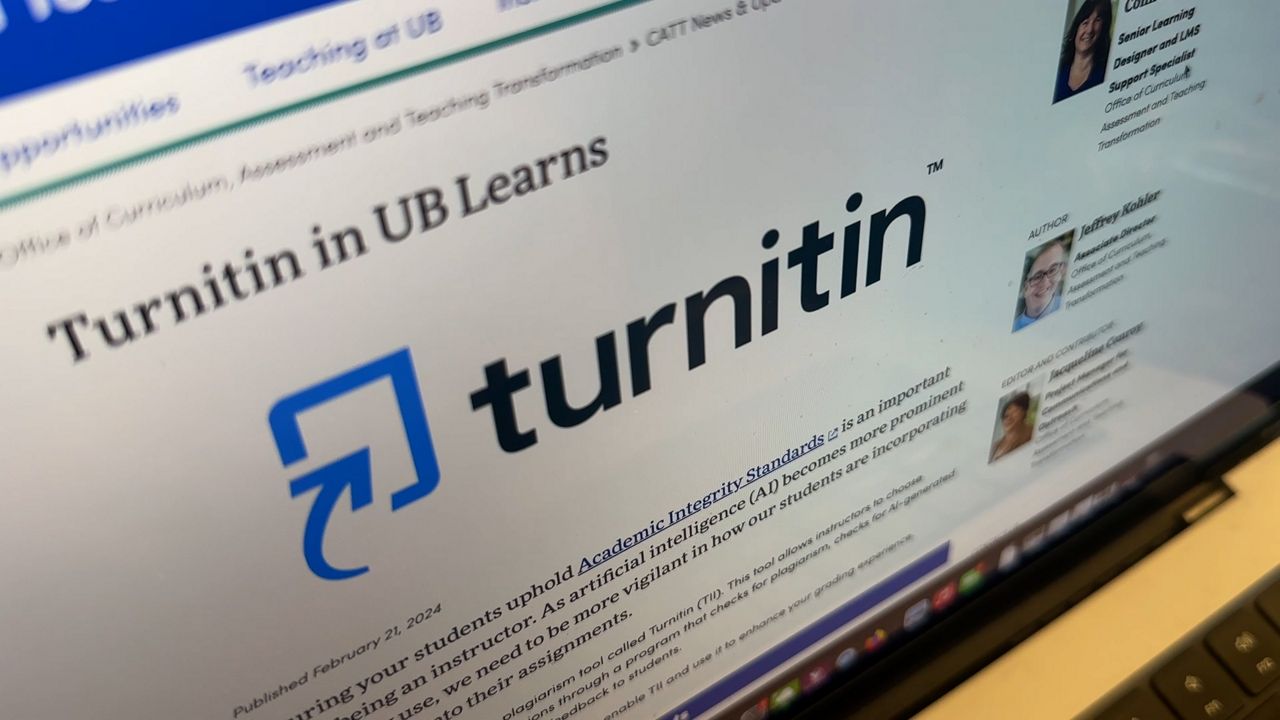Denver restaurant owner supports mental health through nonprofit partnership
More restaurant workers say they're struggling with their mental health. To address those struggles, a Denver employer is prioritizing mental health by partnering with a local nonprofit.
According to Culinary Hospitality Outreach Wellness, 63% of hospitality workers suffer from depression. Many workers are also uninsured or underinsured and can't afford help.
 CBS
CBS
Emily Biederman is the COO of Secret Sauce Food & Beverage, which owns and operates Ace Eat Serve and Steubens Uptown. Biederman said in kitchens and dining rooms, there are many factors that could impact one's mental health.
"We work in a relatively high-pressure environment," said Biederman. "The late nights, which affect your sleeping, the bar, which, if you're struggling with addiction."
She employs nearly 135 people and offers an employee benefit providing free access to mental health care. She said it's the most widely used benefit she offers, and many of her employees have taken advantage of the free resources because it's local, easy to access and affordable.
"Being able to offer that benefit, that is huge, both in terms of hiring, employee retention and also for my team," said Biederman. "People have just been so appreciative of what they get from their therapy sessions."
Biederman partners with Kind Therapy Inc. to offer those resources. Kind Therapy Inc. is a local nonprofit organization that offers mental health support, making outpatient mental health therapy affordable for the underinsured and underserved.
 CBS
CBS
Through the partnership with Kind Therapy Inc., restaurant owners cover and pay for a certain number of sessions every month within their budgets, and employees don't have to pay anything for their sessions. If employees need more sessions than their employers cover, there are also programs that offer reduced rates for therapy, or some sessions could be free through grant-sponsored programs.
Lundi Ramos founded the nonprofit because of his own experience working in restaurants and not being able to afford therapy. He said he wanted his organization to be a place where restaurant workers trusted him to reach out to for help, including for owners who wanted to create mental health solutions for their employees.
"Often, restaurant workers can feel judged by the mental health space that somehow they're going to be talked out of their job, and we're really passionate about them feeling supported within their line of work," said Ramos.
Ramos said about 70% of the industry is also uninsured, and many workers can't afford help.
"Restaurant workers are some of the most resilient people, but they also are quietly burning out, and they need a space where they can feel human and not have to be focused on hosting and performing and fixing and instead have some space for themselves," said Ramos.
 CBS
CBS
Kind Therapy Inc. has in-person and virtual sites. The organization also has therapists who've worked in restaurants and are passionate about helping people within fields they've come from. Since 2020, they've served 4,500 restaurant employees.
Laura Shunk, the President of the Colorado Restaurant Foundation, said one of the association's goals is to help connect employees to resources they need and to help raise money to fund those efforts. Part of that effort was partnering with Kind Therapy Inc.
"Pre-pandemic, we had a therapist tell us that the level of stress that she sees from industry employees is on par from what she sees from first responders," said Shunk. She added that after the pandemic, the Association saw a rise in the need for mental health services in the industry.
"Our industry in particular was hit hard during the pandemic, and we really saw people needing some support," said Shunk. "I think we have more conversations about mental health happening in general, so we've done a number of things over the years, but we're excited with the partnership with Kind Therapy Inc."
Shunk said part of the conversation is raising awareness and having people talk about mental health more. In recent years, the association has set up an Angel Relief Fund, which was a crisis hardship fund. They also helped fund inpatient treatment for mental health care and supported some of the expenses of people who needed resources.
 CBS
CBS
She added that restaurant workers also make up 11% of the state's workforce.
"So when you're thinking about kind of helping a population with mental health, you're really talking about a 10th of the people who live in the state of Colorado who now, through these partnerships, have access to mental health care," said Shunk.
Biederman, Ramos and Shunk all say there has also been a large focus on mental health since the pandemic, and they believe talking about mental health sends a strong message.
"When I was in the industry 15 years ago, I just noticed that there was a lot of people struggling and a lot of lack of talking about it," said Ramos. "The need is still there, but restaurant workers are more excited than ever to support their company culture."
"The fact that the conversation is being had, and is being had in such a positive way, is relatively new for our industry," said Biederman. "Taking care of my team in a way that's meaningful and impactful to them is important. And right now, the conversation of mental health and the restaurant industry, it really is at the forefront."









 English (US) ·
English (US) ·